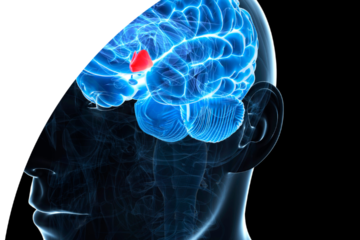
Introduction:
Personal Growth and Self-Discipline are lifelong processes that always include new difficulties and opportunities to learn. Self-discipline is one of the most important skills you’ll need on this journey. This is a trait that is often linked to success in many areas of life, including job growth, personal relationships, and health. When we work on our self-discipline, we improve our ability to handle ourselves, which helps us grow as people and makes our lives better.
The Concept of Self-Discipline
Self-discipline is a powerful tool for personal growth. It is often described as the ability to control your feelings and get past your weaknesses. We can avoid the temptation of instant gratification in favor of long-term gains because we have the drive to do so. It helps us stay focused on our goals, make better choices, and keep our behaviors consistent.
Self-discipline isn’t about putting limits on ourselves or making ourselves follow strict rules. Instead, it’s about knowing what drives us, setting goals that are attainable, and building up the strength to deal with distractions and problems. It’s about developing a proactive approach to our goals, even when we face problems or hurdles.
The Importance of Self-Discipline in Personal Growth
Self-discipline is one of the most important parts of personal growth because it helps us control our actions, behaviors, and choices. Self-discipline makes it easier to avoid distractions, stop bad habits, and start new, healthier ones. Self-discipline helps us take steps every day toward our goals, no matter how we feel.
Achieving Goals:
Personal growth happens when you work steadily toward your goals. SMART goals (which stand for “Specific, Measurable, Achievable, Relevant, and Time-bound”) give us a clear way to direct our actions and efforts toward useful results. By making these kinds of goals, we make a plan that leads us to where we want to go. Self-discipline is what makes this trip possible. It keeps us committed, helps us stay on track, and helps us deal with problems that could make us lose our way. With self-discipline, we have a much better chance of reaching our goals and growing as people.
Developing Emotional Intelligence:
One of the most important parts of self-discipline is being able to understand and control our feelings. It helps us stay calm and level-headed in tough situations instead of acting on impulse. As we pay more attention to our own feelings and the feelings of others, we develop emotional intelligence, which is a key part of personal growth. Emotional intelligence lets us use social networks well, understand other people’s feelings, and act in the right way in different settings. Also, it helps us have healthier relationships, makes it easier to make decisions, and improves our general emotional health, which is a big part of our personal growth.
Overcoming Procrastination:
Putting things off is often the enemy of progress and can slow down personal growth. We limit our potential and efficiency when we give in to the temptation of instant gratification and put off important tasks. But we can beat putting things off if we have self-discipline. Self-discipline gives us the tools we need to set priorities, avoid distractions, and focus on what needs to be done. It pushes us to act right away instead of waiting, which boosts productivity, lowers stress, and helps us grow as people. With self-discipline, we can turn putting things off into getting things done, which pushes the limits of our skills and helps us grow.
Cultivating Self-Discipline and Self-Management Skills

Developing self-discipline takes time, effort, and dedication. Here are some things you can do to help:
Set Clear Goals:
Setting clear goals is the first step to personal growth and self-improvement. These goals give us the direction and purpose we need to keep working hard and making good use of our energy. We are more likely to reach our goals if they are SMART (specific, measurable, achievable, relevant, and time-bound). Setting goals also helps us think about ourselves, set priorities, and make plans, which improves our ability to handle ourselves as a whole.
Establish Routines:
In our daily lives, we have to make a lot of choices, which can make us tired of making decisions and more likely to act on impulse. Setting up habits gives you a structure that makes you less tired and less likely to act on impulse. These habits, which come from self-discipline, make it easier to make decisions and give us more time to focus on more important chores. Also, routines give people a sense of control and predictability, which is good for their mental health and work as a whole.
Practice Mindfulness:
Mindfulness is the practice of being fully aware of where we are and what we’re doing in the present moment. Mindfulness is a strong way to improve focus, make better decisions, and deal with stress in our fast-paced world. It helps us avoid distractions, stay focused on our tasks, and make better choices, all of which are important parts of self-discipline. Mindfulness helps us become more self-aware and understand ourselves better, which are both important for personal growth.
Practice Delayed Gratification:
Delaying gratification means being able to fight the urge to get a small reward right away in favor of a bigger reward later. It is a powerful tool for building self-discipline and helps people learn how to control themselves well. When we practice delayed gratification, we train our minds to give up immediate pleasure for long-term benefits. This makes us more patient, tough, and forward-thinking. This skill not only helps you grow as a person, but it also sets you up for success in many areas of your life.
Self-Care:
Taking care of our physical and mental health is a key part of being able to control ourselves. A healthy diet, enough sleep, and regular exercise all have a big effect on our physical health, mental focus, and emotional stability. By making self-care a priority, we improve our ability to deal with stress, stay focused, and show self-discipline. Also, self-care practices often take a certain amount of discipline to keep up, which makes self-care and self-discipline work together in a positive way. By taking care of ourselves, we are better able to grow as people.
Conclusion:
The road to personal growth can be hard and demanding, but self-discipline can make it easier. Self-discipline isn’t something you’re born with; it’s a skill you can learn and improve over time. As we develop self-discipline and improve our ability to manage ourselves, we give ourselves the strength to deal with problems, the courage to go after our goals, and the ability to grow both individually and professionally. So, the path to personal growth and self-improvement is not only possible, but also fun and fulfilling.



0 Comments